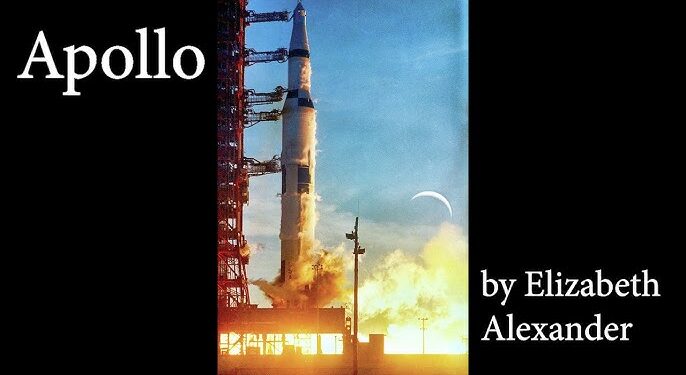Table of Contents
ToggleIntroduction
Apollo Summary And Themes By Elizabeth Alexander Elizabeth Alexander’s Apollo is a poignant exploration of memory, identity, and the intersection of public history with private experience. Known for her mastery of weaving personal narratives with broader cultural and societal themes, Alexander draws readers into a deeply reflective moment set against the backdrop of the Apollo 11 moon landing in 1969. The poem captures a critical juncture in American history when technological achievement coexisted with profound social upheaval.
Alexander uses the moon landing as a lens to examine race, belonging, and the often-overlooked perspectives of marginalized communities during celebrated historical events. In Apollo, the grand spectacle of human achievement contrasts with the quiet, personal struggles of individuals who remain unseen or overlooked. This duality forms the core of the poem’s resonance.
In this analysis, we will summarize the poem’s narrative, unpack its themes, and examine its broader implications. Through a closer look at Alexander’s rich imagery and layered storytelling, we’ll understand how Apollo speaks to both the personal and the collective, the universal and the particular.
Summary of Apollo
Elizabeth Alexander’s Apollo centers on a reflective memory from the speaker’s childhood, vividly capturing the day of the Apollo 11 moon landing. The poem begins by setting the stage with the monumental achievement of the moon landing—a moment of global fascination and awe. While the world turns its gaze upward, transfixed by this technological triumph, the poem shifts to a more intimate perspective, focusing on the speaker’s family life and the events unfolding in her community.
The young speaker and her family are not gathered around a television, as many families were on that historic day, but instead are engrossed in the mundane realities of life. The speaker recalls her father’s unique way of processing the moment: he uses the event to educate and inspire his children, connecting the moon landing to broader discussions of race, resilience, and aspiration. The father’s teaching embodies a larger truth—while history is being made on the global stage, personal narratives and lessons unfold simultaneously, offering a different but equally significant understanding of the moment.
The poem contrasts the soaring aspirations of the Apollo mission with the grounded, often-overlooked struggles and dreams of Black Americans in the 1960s. By recounting a specific incident of racial discrimination—an interaction that emphasizes exclusion even during a moment of unity—the poem subtly critiques the disparity between the inclusivity symbolized by the space race and the reality of systemic inequality.

Themes in Apollo
1. The Duality of History: Public Achievement vs. Private Experience
One of the central themes of Apollo is the juxtaposition of public history with private experience. The moon landing is a shared, celebrated achievement, yet for the poem’s speaker and her family, it is contextualized through their own struggles and aspirations. Alexander highlights how grand historical moments can overshadow the lived experiences of those on society’s margins.
This duality underscores a broader truth: historical events are not experienced uniformly. While some marvel at humanity’s progress, others confront the unchanged realities of injustice and exclusion.
2. Race and Exclusion in Moments of Triumph
Alexander’s poem critically examines the racial dynamics of the Apollo 11 moon landing. While the mission was hailed as a triumph for all humanity, it occurred during a period of significant racial inequality in America. For the speaker and her family, the moon landing is not just a moment of inspiration but also a reminder of exclusion.
The poem’s subtle commentary suggests that technological progress does not necessarily equate to social progress. By anchoring the narrative in a Black family’s perspective, Alexander challenges the universality of the moon landing’s celebratory narrative, asking readers to consider who is included—and excluded—from such moments of triumph.
Read more
3. Aspirations and Resilience
The father’s role in the poem is emblematic of resilience and aspiration. By framing the moon landing within a larger narrative of striving against adversity, he provides his children with a lens through which to view their own potential. The Apollo mission becomes a metaphor for perseverance, offering hope even in the face of systemic challenges.
This theme resonates deeply, highlighting the importance of familial guidance and the power of reframing adversity into inspiration.
4. Memory and Perspective
Through the lens of childhood memory, Alexander captures the ways in which significant events are filtered through personal and familial contexts. The speaker’s recollection is not merely about the moon landing but about the intimate moments that surrounded it. This blending of public and private memory emphasizes how history is both collective and deeply personal.
5. Intersection of Science and Humanity
While the Apollo mission symbolizes technological achievement, Alexander’s poem roots it in humanity by focusing on the lives of ordinary people. This interplay between science and humanity raises questions about the purpose of progress: Is it solely about achievement, or should it also address human needs and inequalities?
Analysis of Key Literary Elements
1. Imagery
Alexander employs vivid imagery to contrast the grandiosity of the moon landing with the grounded realities of the speaker’s life. The descriptions of the spacecraft and the moon evoke wonder, while the family’s home life and community interactions provide a stark counterpoint, grounding the poem in a sense of immediacy and relatability.
Read more
2. Tone
The tone of Apollo shifts between awe and introspection. While the moon landing evokes admiration, the poem’s focus on racial inequity and personal memory introduces a somber, reflective undertone. This tonal complexity mirrors the duality of the poem’s themes.
3. Structure
The poem’s structure mirrors the layered nature of its narrative, seamlessly moving between public spectacle and private memory. This fluidity reflects the interconnectedness of global events and individual experiences, emphasizing that both are integral to understanding history.
4. Voice and Perspective
The speaker’s voice is deeply personal, yet it resonates with broader cultural and societal significance. By recounting the story from a child’s perspective, Alexander captures the innocence and curiosity of youth while weaving in the wisdom of hindsight.

Conclusion
Elizabeth Alexander’s Apollo is a masterful exploration of history, memory, and identity. By weaving together the global significance of the Apollo moon landing with the intimate realities of a Black family’s life, Alexander creates a narrative that is both deeply personal and universally resonant.
Through its rich imagery, nuanced themes, and reflective tone, Apollo challenges readers to reconsider the narratives that shape our understanding of progress and achievement. It reminds us that history is multifaceted, and every grand event contains countless untold stories. In celebrating both the technological marvel of the Apollo mission and the resilience of marginalized voices, Alexander’s poem offers a powerful meditation on the complexities of human experience.
Read more
FAQs
1. What is the significance of the Apollo moon landing in the poem?
The Apollo moon landing serves as both a literal event and a metaphor for human aspiration and progress. In the poem, it represents the potential for achievement but also highlights the disparities in who benefits from such progress.
2. How does the poem address issues of race?
Apollo critiques the exclusion of marginalized voices from celebrated historical narratives. By focusing on a Black family’s perspective, the poem underscores the systemic inequalities that persist even during moments of unity and triumph.
3. Why does the poem focus on memory?
Memory allows Alexander to explore how historical events are experienced differently by individuals and communities. The personal lens adds depth to the narrative, showing how private moments can shape one’s understanding of public history.
4. What role does the speaker’s father play in the poem?
The father serves as a guiding figure, using the moon landing to inspire resilience and ambition in his children. His perspective bridges the gap between the public significance of the Apollo mission and the personal struggles of his family.
5. How does Elizabeth Alexander use contrast in the poem?
Alexander contrasts the grandeur of the moon landing with the everyday struggles of the speaker’s family. This juxtaposition highlights the gap between technological progress and social justice, emphasizing the need to address both.
6. What is the poem’s tone?
The tone is reflective and layered, blending awe at the Apollo mission with a somber critique of inequality. This tonal complexity mirrors the poem’s themes of duality and intersectionality.
7. How does the poem explore the theme of resilience?
Through the father’s teachings and the family’s experiences, the poem emphasizes the importance of resilience in the face of adversity. The Apollo mission becomes a symbol of striving for greatness, even amid systemic challenges.
8. What is the role of science in the poem?
Science, represented by the Apollo mission, is both celebrated and critiqued. While it symbolizes human potential, the poem questions whether technological progress alone can address societal inequities.

















